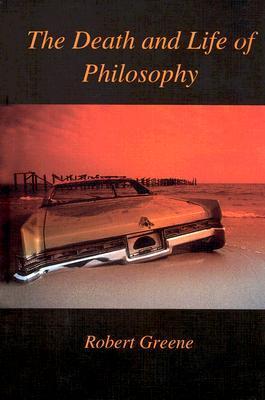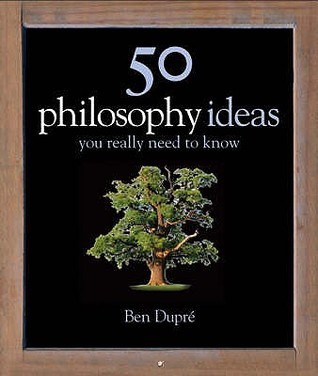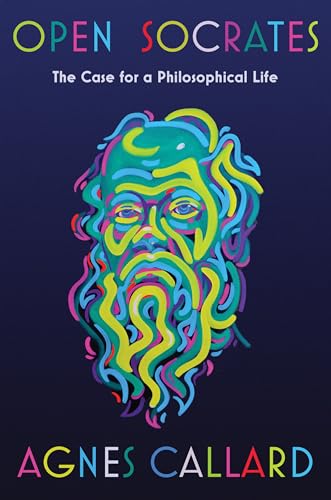
Death and Life of Philosophy
Book Description
What if the greatest battles in history were fought not with swords, but with ideas? In "Death and Life of Philosophy," Robert Greene masterfully peels back the layers of human thought, revealing a world where philosophies collide, reshape nations, and ignite revolutions. Each chapter plunges into the lives of thinkers who challenged the status quo, touching on the delicate balance between ambition and mortality. It’s a thrilling exploration of belief systems that have shaped our world, the profound impact of their legacies, and the eternal struggle for truth. What philosophies will rise—and which will fall—when the dust settles?
Quick Book Summary
"Death and Life of Philosophy" by Robert Greene is a riveting journey through the high-stakes battles of ideas that have defined human history. Rather than telling the tale of philosophy solely through abstract theories, Greene interweaves the personal ambitions, rivalries, and vulnerabilities of thinkers who dared to challenge the norms of their time. The book explores how revolutionary philosophies have triggered social upheaval, toppled institutions, and remade individual and collective destinies. As Greene explores the enduring clash between conformity and innovation, he shines a light on the entwined destinies of thought, power, and mortality. This work underscores not only how philosophies shape humanity, but also how their fates are deeply tied to human frailties, passions, and the relentless pursuit of meaning.
Summary of Key Ideas
Table of Contents
Ideas as Instruments of Power
The narrative begins by emphasizing how philosophies are not merely academic exercises, but tools of immense power. Greene illustrates that throughout history, the greatest transformations have come not from armies and empires, but from disruptive thinkers whose radical ideas rewrote the rules of society. From ancient Greece to modernity, he highlights pivotal moments when new thought-forms toppled entrenched authorities, exposing the immense force wielded by those with the courage to challenge consensus. These intellectual battles are portrayed as world-altering confrontations, echoing through time as cultures adopt, adapt, or resist new paradigms.
Ambition and the Philosopher’s Dilemma
The book delves into the delicate dance between ambition and mortality, showing that philosophers are as human as their adversaries. Greene examines the personal costs of heresy: exiles, persecution, and, at times, death. Yet, he also details how ambition compels thinkers to pursue truth despite the risks, often seeking not just understanding, but immortal influence. The biographies of figures like Socrates, Nietzsche, and Simone de Beauvoir illuminate the internal and external struggles that frame philosophical revolutions, laying bare the personal stakes beneath universal questions.
Revolutions Sparked by Thought
Greene pivots to examine how revolutions in thought catalyze social and psychological upheavals. The book showcases the domino effect unleashed when a dominant worldview is overturned, whether by the rise of rationalism during the Enlightenment or the existentialist waves of the 20th century. He explores how ideas galvanize masses, offer hope or despair, and sometimes push societies to the brink of chaos. This section highlights the dynamism and volatility inherent in the interplay between collective beliefs and individual action, reminding readers that every new philosophy brings both opportunity and danger.
The Legacy and Mortality of Belief Systems
A significant theme is the mortality of belief systems themselves. Greene argues that, like individuals, philosophies are born, mature, and eventually decline or are outright destroyed. The persistence of certain schools of thought—and the demise of others—depends as much on historical context and adaptability as on internal coherence or truth. By tracing the fates of Stoicism, Marxism, and other traditions, he illuminates how enduring legacies are crafted amid continual flux and challenge, and how each era reinvents or rejects the wisdom of its predecessors.
Truth’s Endless Struggle
The book closes by reaffirming the eternal, unresolved struggle for truth. Greene contends that philosophy’s "death" is always temporary; suppressed ideas may resurface in new guises, igniting future generations. He invites readers to reflect on their own beliefs and the ways in which philosophical debate continues to shape destiny. In this sweeping survey, the ultimate lesson is that the life and death of philosophy is a story without end, propelled by humanity’s boundless curiosity and drive for meaning.
Download This Summary
Get a free PDF of this summary instantly — no email required.





